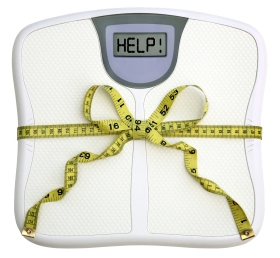Article at a Glance
It is easy to see why parents worry about their overweight teens. Bullying, health problems, discrimination, and rejection are all common problems for individuals who struggle with their weight. The hard part is knowing exactly how to help.
Well-intentioned parents often resort to nagging, reminding, and bribing in an effort to help teens drop weight. Even when parents believe they are being subtle, techniques like this generally do more harm than good. Overweight teens desperately need acceptance and a supportive home environment. Pressuring them about how they look and what they eat can damage family relationships. In fact, studies show that overweight children are subjected to more negative family interactions. When you combine this with social pressure at school, it isn’t surprising that overweight teens report lower life satisfaction.
Studies also show that dieting doesn’t work over the long-term. And pushing a diet on a teen can lead to more family conflict.
So what does work? It turns out that actions speak louder than words. Teens do better when healthy habits are modeled at home. Instead of focusing on the negative or on one family member, drop the pressure and work on changing how your entire family eats and exercises. For example, instead of preparing special low-calorie meals for your teen, take a look at your entire family’s lifestyle. It might mean making changes to how much soda you stock at home or that you go for a hike together on the weekend instead of out to the movies. By providing loving guidance, you can improve your relationship with your child and help build healthy habits that will last a lifetime.
Here are some tips on how to send the right messages to our children—whether or not they are struggling with weight issues. Because how we value appearance is something we all struggle with, regardless of our weight.
Reduce the Negativity: As a society we have become accustomed to criticizing how we look. But talking negatively about your body or others’ bodies will teach your children to develop negative messages about their self worth.
Unplug and Get Active: Watching TV, playing video games, or surfing the Internet aren’t the only way to entertain ourselves or to unwind. If your children see you being active, they are more likely to be active too. Give your children plenty of time for active play and be sure to also plan active outings as a family.
Become Media Savvy: Changes in technology have given our children access to a staggering amount of information. And they are being bombarded with nonstop media messages. Although many parents believe that their teens are mature enough to handle this stream of information on their own, the reality is that they desperately need guidance. Children need to learn how to look critically at media content and spot underlying objectives. Even young children can learn to identify marketing ploys. Once in the teen years, teenagers can learn to assess the messages they receive about self-image and other values. Teaching children how the media can alter images and distort perceptions can help children develop healthier attitudes about their own worth.
Change your Focus: The teen years are an important time for developing a sense of self. Overly focusing on things like dating, marriage, make up and clothing can send the message that how we look is an important part of who we are. Instead focus on developing qualities that your teen has control over—things like academics, sports, music, social skills, and other talents. When parents praise children for attributes that aren’t based on looks, it helps children develop a sense of self that isn’t dependent on their appearance. This is especially important for fathers with daughters, as they seem to have a greater impact on their daughter’s emerging identity.
